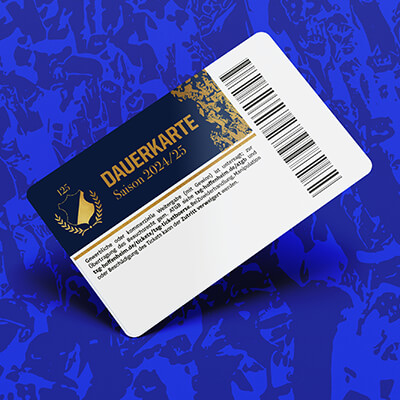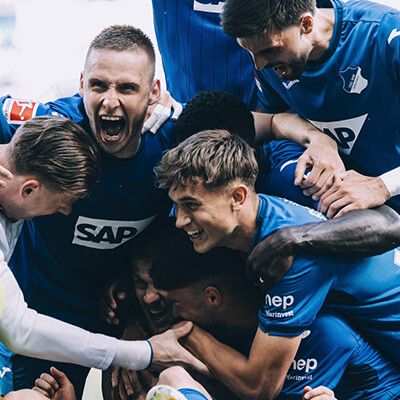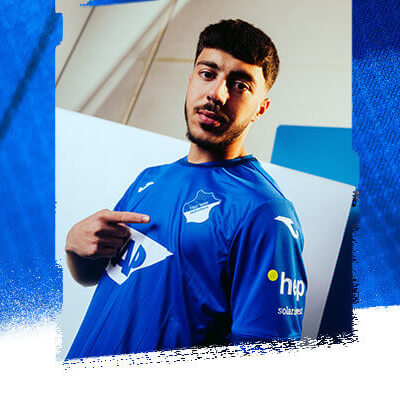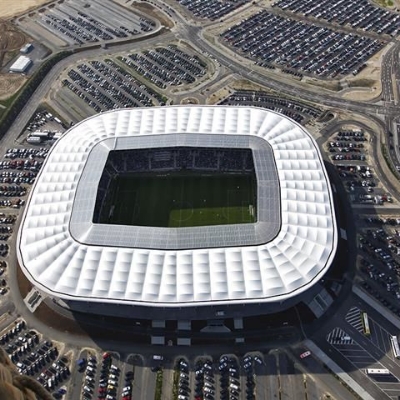"It's like a parallel world"
In November 2007, Marcus Urban became the first German professional footballer to come out. The former East German youth international didn't want to live in denial, and thus ended his career with RW Erfurt in 1993. Since coming out, the 52-year-old has been fighting against homophobia in sport, working as a speaker and coach. For 17 May, the International Day against Homophobia (based on the former § 175 StGB law, which made homosexuality a punishable offence), Marcus Urban has now initiated the "Sports Free" campaign, an initiative for a joint coming-out, which he hopes will lead to homosexual footballers sending out a message. TSG Hoffenheim are supporting the project and cause both financially and conceptually.
Mr. Urban, why is it so important for gay footballers to come out?
"Because it's just the normal thing to do. If something natural like love and relationships have to be kept secret, it maintains the impression that it's something improper. It takes an incredible amount of strength to hide love and relationships. It's incredibly stressful."
How do you know about gay footballers?
"Neither my own coming out nor that of national team player Thomas Hitzlsperger ten years ago led to any further comings out in Germany. I then put out the word in my network about my plan to organise a joint coming-out. The response was immediate, and a real dynamic has since developed. I know of more than 100 players over the past decades. Some of the players are in contact with each other. There are global stars among them, international players, players in the third tier, players from many different countries and continents."
How upset are you that so few footballers have come out of the closet?
"When I watch the Bundesliga or the Premier League and see players who give everything for their team, who score goals and cause the crowd to cheer, while all the while nobody knows who they really are; I find that incredibly sad. But I don't live the lives of others. It's not my job to say who's who, even if it's sometimes difficult. Because I know that it would change the whole picture of the Bundesliga. But the players themselves have to be convinced to reveal themselves - and as long as the players can't do that, I take it upon myself to speak for them. Because life in secret is terrible. Psychological treatment, suicidal thoughts, depression, secret meetings, fake girlfriends and wives. That's pretty intense. I know of cases in sports where players have died prematurely, for example from HIV - and nobody knew who they really were. To put it bluntly: everyone has to die at some point, but it should at least not be in denial."
How will the coming-out work?
"That's up to the individual players. It's just an initial offer. At least we're getting more and more feedback that it's not just athletes who want to take part, but also employees, referees and coaches. But everyone makes their own plans, at their own pace. Perhaps not as part of the campaign, or not on 17 May, but later. We have organised this flexibly. There will be a digital picture wall. Just like with ActOut - 185 actors and actresses have come out. You can post a video, a text or an avatar on this platform. There are many possibilities, because people are different. We are also making a film, a kind of 'making of'."
What role do clubs have to play here?
"The players naturally look to see whether their clubs are committed. Because there are no clubs without queer players, and there never have been. They have always hidden themselves away over the decades. We want to end this chapter. It's better for everyone if I'm surrounded by people who are free and self-determined. That's why the clubs have a decisive role to play, also when dealing with team-mates. Because the dressing room can be a difficult place. I believe that the clubs need to keep holding conversations about this over and over again."
What impact could a simultaneous coming-out from several footballers have?
"If everyone came out at the same time, it would change the whole picture. Children and young people around the world would see that they can be whoever they want to be. It doesn't matter where I come from, what I look like, what disability I have, who I love. Sport has a very important function in society. If you change something in professional football, you change society. And if we do it globally, then we would actually change the world a little. That's very inspiring. You don't get many opportunities like that in life."
Do you fear footballers will face discrimination and rejection after coming out?
"Of course there will also be hate speech. Discrimination is part of society. Just ask older people or people with disabilities who experience it every day. Football is certainly no exception. But what bothers me is that there has only ever been negative thinking around this in recent years. The question of what bad things can happen, the fear of being let down. But nobody has thought about the potential. In my opinion, those who take the plunge will need more management when it comes to marketing, for example, in order to cope with the pressures that will come with it. This is because the players will have a unique selling point for the first time. There is hardly a better testimonial for authenticity. Everyone knows you have character. Anyone who pulls it off will have shown a special type of character."
How important would it be if a really prominent football personality, possibly even a global star, came out on 17 May?
"Every life is equally valuable, whether someone is playing in the 13th or the first division. And each individual will move and touch people in their immediate environment, in the respective club, in the city. But the impact is of course different if it's someone who plays in the Regionalliga or someone who plays for the national team. The interesting thing is that the players know each other and are also in contact with each other, the Regionalliga footballer with the Champions League player. There are parallel worlds."
Men's football in particular is characterised by a lack of openness. Why does it seem easier for homosexual women to come out?
"Because it's simply not seen as important in women's football, they're more relaxed about it. Of course, there is also less publicity, fewer fans, less media attention. There simply aren't as many negative conflicts as with the men. Perhaps that makes it easier. For example, there are openly lesbian couples at Bayern Munich and VfL Wolfsburg. I also know gay male couples in the Bundesliga, but they feel they have to live in secret. I think that men should also be able to do the things that are possible in women's football."
However, closeted homosexuality is by no means just an issue in football.
"We have just a dozen known cases in the history of the NBA, as well as in American football. There is no sport at all that has shown itself as open to male homosexuality. Football is actually in mid-table, with 25 coming-outs to date. Calculated over 150 years, mind you. 25 footballers out of millions of players. Everyone realises that this cannot be true in purely statistical terms. Footballers will realise on 17 May that they are a small piece of the puzzle in a far bigger game. A game lasts 90 minutes, a whole life 90 years. Denying and hiding your whole life for the sake of those 90 minutes, even if they are important, is certainly not a good idea."
All information on the campaign can be accessed here.





















